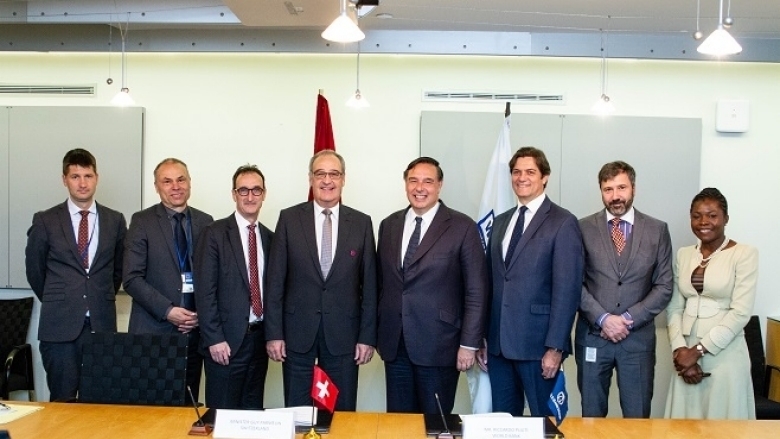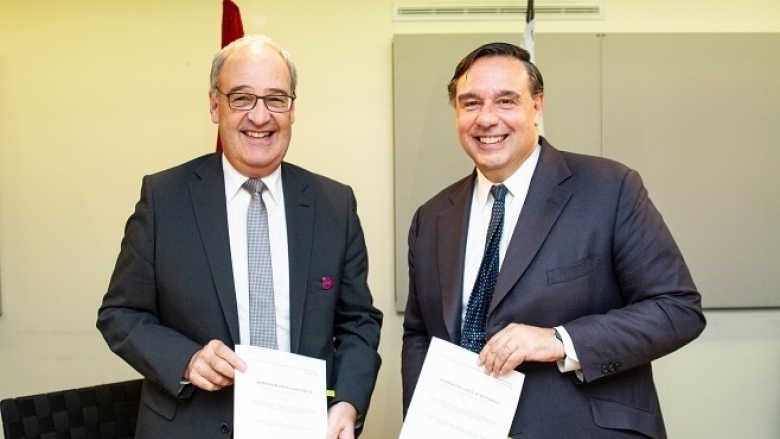The Extractives Global Programmatic Support (EGPS) Multi-Donor Trust Fund is the World Bank Trust Fund to support improving extractive industries’ governance. EGPS started its second phase (EGPS-2) on Saturday, October 19, 2019, with Switzerland signing up to EGPS-2 as the first donor with a contribution of 7 million Swiss Francs (equivalent to 7.1 million US$).
The Administration agreement was signed by the Swiss Head of the Federal Department of Economic Affairs, Education and Research (EAER), Mr. Guy Parmelin and Mr. Riccardo Puliti, Global and Regional Director, Energy and Extractives Global Practice at the World Bank.
A total of 10 donors announced their engagement and financial contributions to the new Trust Fund and unanimously endorsed its new strategy (Australia, Belgium, Canada, EU, Finland, France, Germany, Netherlands, Norway, Switzerland, United Kingdom). EGPS-2 will have a target funding of US$69 million over six years.
The new EGPS Multi-Donor Trust Fund will focus on:
· EITI implementation: EGPS is by far the most important funding facility to support implementation of the Extractive Industries Transparency Initiative (EITI) globally.
· Evidence-based, effective regulation and institutional strengthening to set the framework for an extractives sector that enables investment and ensures inclusive and sustainable development at the local and national level.
· Local value and diversification that integrates Extractive Industries into the local economy and provides shared infrastructure to foster structural economic development at the local and national level.
· Local community benefits for all and mitigating impacts on local ecosystems. This includes engagement in Artisanal and Small-Scale Mining and active community support via information sharing and participation in decision-making as well as mitigation of environmental impacts.


